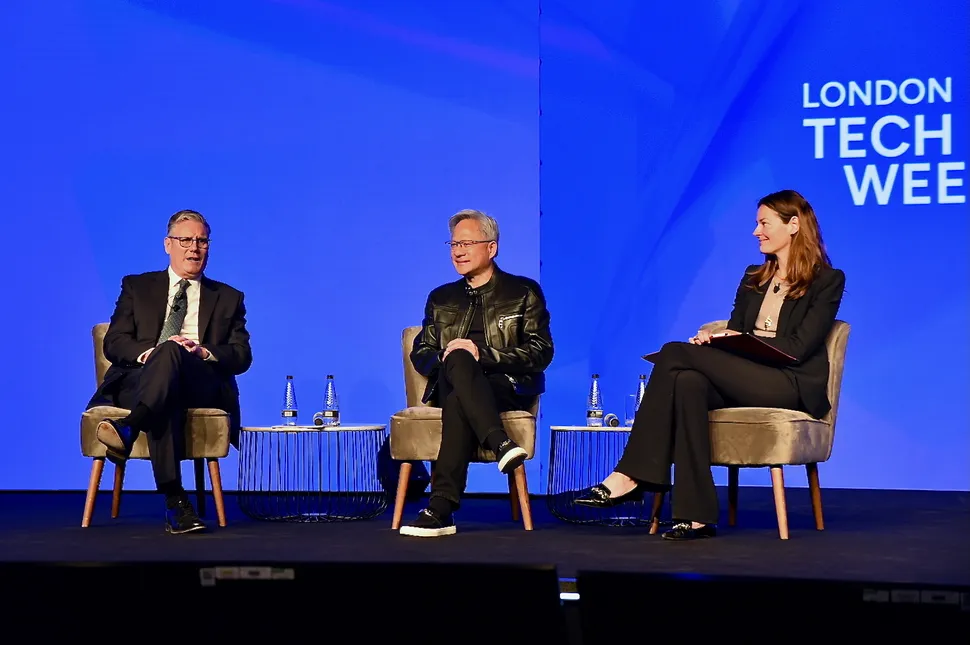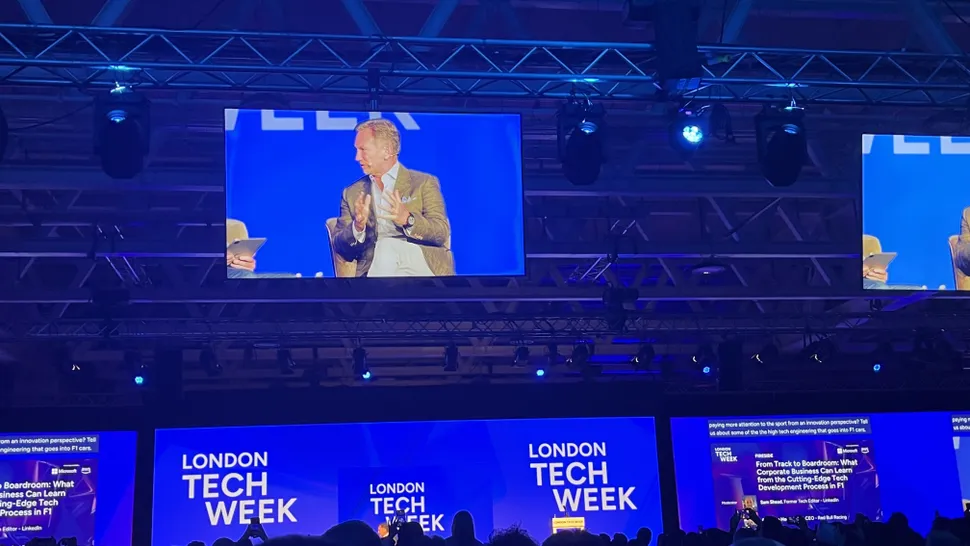A Day at London Tech Week 2025: Where AI Took Centre Stage
- 16 June 2025
London Tech Week has always been an unmissable date in my diary, but this year’s opening day felt different. The buzz outside the venue was immediate, the kind of low hum you only get when you know something interesting is about to happen. Delegates queued patiently at registration, name badges flipping in the warm breeze, conversations already drifting between AI breakthroughs and the best place nearby for a coffee.
I’d chosen the first day for one reason: the programme was packed with people I wanted to hear from, and a couple I hoped to meet.
Politics Meets Silicon Valley
The main stage filled quickly for the morning session: the UK’s Minister of State for Investment in conversation with Jensen Huang, the CEO of Nvidia. It’s rare to see a government figure and a tech titan share a stage without lapsing into clichés, but this was refreshingly direct.
Huang spoke with the same energy he’s known for at Nvidia launches, but here he was focused on the UK — its universities, its research culture, and its potential as an AI leader. The Minister, for their part, struck a confident tone about drawing global investment while safeguarding the UK’s ability to build and own its innovations. You could feel the room leaning in, sensing that both were making a case for the UK as more than just a consumer of AI, but a genuine hub for it.

AI in the Real World
Next on my agenda was a conference session on AI in Complex Industries. I’d expected it to be a little abstract — the sort of talk that promises the moon but never quite lands — but it turned out to be one of the most grounded discussions of the day.
Speakers from aerospace, pharmaceuticals, and finance shared examples of where AI is already in play: predictive modelling to shave years off drug development timelines; simulation tools in aerospace that cut down on expensive physical testing; fraud detection systems that actually learn from new threats in real time.
It struck me that the most exciting work in AI right now isn’t necessarily the flashy consumer-facing stuff — it’s these targeted, highly specialised uses that can change an entire industry’s rhythm.
Conversations in the Gaps
One of the most valuable aspects of events like this is what takes place in the corridors between sessions. During this time, I had the opportunity to attend a session featuring Sam Shead, former tech editor at LinkedIn. He brilliantly presented how AI, particularly how the narrative, can swiftly shift from boundless optimism to existential concern — often within the same headline.
Later in the day, I was fortunate enough to listen to Christian Horner, CEO of Red Bull Racing, speak at the conference. As a long-time F1 fan, this was a particularly memorable moment. The discussion touched on data analytics in motorsport, and although it was short, it was captivating to learn how advanced technologies, including machine learning, are already integral to their operations — from race simulations to split-second decision-making during races.

The Day’s Common Thread
By mid-afternoon, it was clear that almost every session, no matter the advertised topic, circled back to AI. Not in the breathless “AI will change everything” way we’ve been hearing for years, but with concrete plans, measurable results, and cautious realism.
It was a reminder that AI isn’t just “coming” — it’s already here, quietly shaping industries while the public debates its potential.
Looking to 2026
I left with a notebook full of insights, a handful of business cards, and more than a few ideas to follow up on. If the opening day was anything to go by, London Tech Week 2026 will be even more ambitious.
And yes — I’ll be there, badge at the ready, waiting to see how the conversations from this year have evolved by next June.